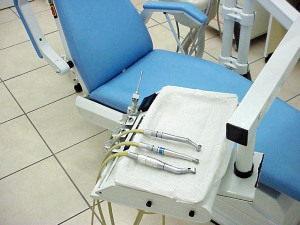
The FTC Headquarters in Washington, DC. The cornerstone to the building was laid in 1937 by Franklin Roosevelt, reportedly using the same trowel George Washington used to lay the cornership of the U.S. Capital in 1793. In the spirit of competition, the National Gallery of Art has set its sights on expanding into the FTC building, and in 2016, the General Services Adminsitration has been investigating the proposal. The FTC has strongly resisted this form of competition for its space.
Author: Steven Levitsky
Under US antitrust Law, parties to certain mergers and acquisitions must prepare what is called a Hart-Scott-Rodino (HSR) filing for the antitrust agencies.
In an earlier article, we mentioned that HSR filings, at least for voting securities and LLC interests, are not triggered by the literal “size-of-transaction” amount.
Instead, they are triggered by a combination of (1) all existing holdings in a target plus (2) what you intend to buy in that target. (In HSR lingo, this is called “aggregation.”) Plus, you need to calculate the total existing holdings across the entire control group. (In HSR lingo, this means all the entities controlled by the “ultimate parent entity.”) When you don’t, you run the risk of being fined $40,654 per day.
Here’s a great example, based on a real-life case. Alpha Fund owns $84 million of Bravo Ltd’s voting securities. Alpha Fund is controlled by Mr. Smith. Because of this control, Mr. Smith is the hedge fund’s “ultimate parent entity,” and he is deemed to “hold” everything in his control group.
Based on his fund’s holdings, Mr. Smith was appointed to the Board of Bravo Ltd. As a board member, he was given stock options for 10,000 voting shares and exercised them. Let’s assume that those shares were worth $50 each, so that the entire option acquisition was only $500,000. This is 0.0059% of the HSR threshold of $84.4 million. But that’s not the way the HSR system works.
What Mr. Smith should have done (or rather, what his lawyers should have done) was combine, or “aggregate,” all his existing holdings ($84,000,000) with the options he was about to convert $500,000). In other words, as a result of his option transaction, Mr. Smith now “held” $85,000,000 of voting securities in Bravo Ltd. But he never made an HSR filing. In this case, the FTC fined him $250,000.
This is actually a simplified version of the real story. In fact, Alpha Fund had previously failed to make an mandatory HSR filing, and had made a corrective filing only later, only proving that it is hard to keep track of acquisitions across a control group. As part of the settlement of the corrective (after-the fact) filing, the FTC always imposes an obligation to create and maintain a compliance program for future acquisitions. The FTC takes the position that a second failure to file proves that the compliance program was not complied with.
By the way, there was absolutely no competitive issue involved in this violation. The control group’s collective holdings in Bravo Ltd. were too low for it to be able to exert any control. Furthermore, Bravo Ltd. granted the options with one single day to exercise them. There was no possibility for Mr. Smith to have made an HSR filing. Despite all these mitigating factors, the fine was imposed simply because there had been an acquisition that required an HSR filing, and no filing was made.
Here’s another complication from the same story. Let’s assume that Alpha Fund bought the shares at $50,000,000, and that over time they appreciated in value to $84,000,000. It’s not clear, but it seems possible that Alpha and Mr. Smith had considered the original acquisition cost of the stock ($50,000,000 plus $500,000). That was another serious mistake, because the HSR rules require you to calculate the current value of your existing holdings. In other words, if your original $50,000,000 investment grows to $85,000,000 through appreciation, you don’t need to do a thing. But you can’t acquire a single dollar more of stock in the same target without making a filing.
Continue reading →
 The Antitrust Attorney Blog
The Antitrust Attorney Blog












